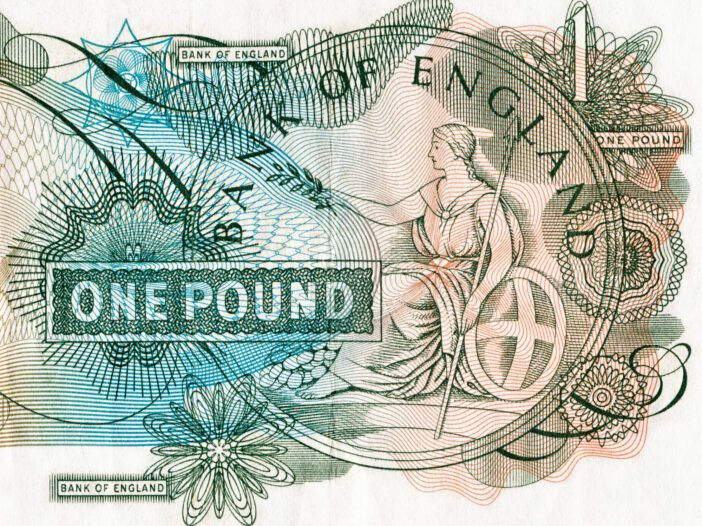Oh my…
The Bank of England (BoE) was for turning!
Liz Truss, Britain’s rookie prime minister, made a bold move. NBC News: ‘The U.K. is in turmoil as a gamble to solve its economic woes fuels a crisis instead’:
‘[Liz Truss’s] Conservative government’s 45 billion pound ($48 billion) plan to slash taxes — particularly for the country’s highest earners — has sent shock waves through financial markets, causing the pound to plummet and leaving Truss’ own political future in sudden doubt just three weeks after she took office.’
And then, on Tuesday, what ho!…the market turmoil caused the BoE to ‘pivot’. From CNBC: ‘Bank of England delays bond sales, launches temporary purchase program after market turmoil’:
‘The Bank of England will suspend the planned start of its gilt selling next week and begin temporarily buying long-dated bonds in order to calm the market chaos unleashed by the new government’s so-called “mini-budget”.’
Yes, dear reader, you can add ‘market chaos’ to a long list of emergencies — epidemic, recession, politics, war, getting dumped by a girlfriend, and mosquito bites — that will cause central bankers’ knees to buckle.
Inching toward normalcy
We’ve never met a tax cut we didn’t like. And we don’t dislike Ms Truss’s version. But just because we like it doesn’t mean it is a good idea. And for a country with double-digit inflation…and US$2.5 trillion of debt…a tax cut is unlikely to contribute much to national happiness.
Tax cuts leave people with more money in their pockets. But to make any fiscal sense, tax cuts need to be matched by spending cuts. That was the problem at the heart of Donald Trump’s 2017 tax plan too. The additional cash in private hands feeds inflation and starves public finances, leaving the government to borrow and/or print more.
Eventually, every penny squandered by the feds must come from individual households (corporate taxes may be levied on businesses, but the ultimate payers are human beings). Without spending cuts, reducing taxes just shifts the cost into the future — in the form of higher prices.
UK investors saw where this was headed immediately. If inflation is going higher, they reasoned, interest rates need to go higher too. And before a Royal Guard could blink an eye, the yield on a 30-year gilt (a government bond) had jumped from less than 1% in December to 5% on Tuesday.
The inflation rate in the UK is officially 10.1%. Lending money to the government at a 5% yield for 30 years…is either very generous…or wantonly stupid. But at least 5% was a modest step towards normalcy.
And what do you call it when, after a long period of bizarre and claptrap monetary policy, you suddenly move closer to normalcy?
An emergency!
This ol’ gal
It was a sad day for the ‘Old Lady of Threadneedle Street’, as the bank is known. She was set up in 1694 to help England raise the money — US$1,200,000 — to build its navy. At the time, the government’s credit was poor. So the bank offered lenders 8% interest — in gold — to bring in the cash.
But, over the years, the ‘Old Lady’ seems to have gone a little ga-ga. She got knocked off the gold standard during the First World War and never quite recovered. Then, in the 1930s, she gave up on gold altogether. And finally, the UK sold off its gold reserves in the famous ‘Brown Bottom’ in which the Chancellor of the Exchequer, later Prime Minister, Gordon Brown, managed to dispose of Britain’s gold at the very worst prices in 20 years.
And now this…
Her mind is gone; at least the ol’ gal is still on her feet…and can still do a marvellous pirouette. The BoE now says it was temporarily departing from its tightening program — we hardly knew ye! — in order to counter what it said was market ‘dysfunction’.
But where was the dysfunction? In the marketplace, which was merely adjusting to the threat of normalcy? Or in the Bank of England itself?
Why was a 5% yield on a 30-year government bond cause for panic? It still leaves the yield on gilts 510 basis points below the rate of consumer price inflation. Investors who lend money to the government agree — if everything stays the same — to lose more than half their money. Nothing ‘normal’ about that!
The BoE has made its pivot much too soon…and now they will make their economy even more dysfunctional than the US. But here, we are grateful to drug addicts, dumbbell central bankers, and bitter ex-spouses. The world needs jackasses…to show it where not to go and what not to do. In that regard, we thank the hinds at the Bank of England…
…and hope the Fed gets the message…
Regards,
 |
Bill Bonner,
For The Daily Reckoning Australia

